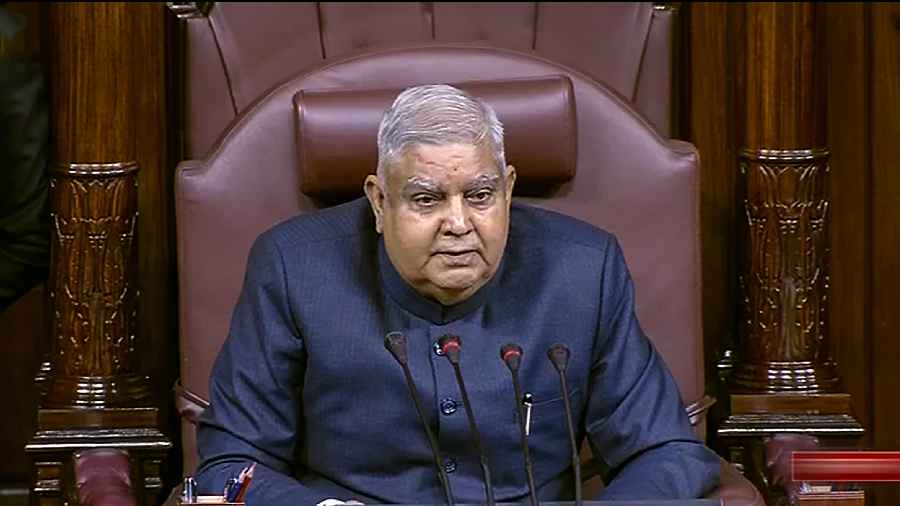Aconstitutional office takes for granted the upholding of the Constitution. Jagdeep Dhankhar, the vice-president of India and chairman of the Rajya Sabha, has demonstrated, however, that constitutional expectations and systems need not be complied with. Rather, constitutional positions such as his can be used to breach them. Mr Dhankhar appointed eight of his staff, four from the vice-president’s secretariat to various parliamentary committees and department-related standing committees under the Rajya Sabha. This unceremoniously overturned the system in place. An officer from the parliamentary secretariat is usually assigned as support to the working of a committee, through providing required facts to the legislators on the panel, for instance. The officer, of joint or additional secretary level, reports to the secretary-general if there is a problem, who, in turn, reports the matter, if grave enough, to the chairman. This system of recording and reporting committee matters through prescribed channels allows the chairman to maintain an impartial distance from the deliberations as his office demands. By changing this, Mr Dhankhar opened up multiple routes of direct reporting as well as the potential for direction and intervention.
This alters the role of the chairman of the Rajya Sabha envisaged by the Constitution. It is not a politically active office: the chairman must lay aside his political affiliations to remain impartial in the Rajya Sabha and maintain a decorous distance from matters discussed in committees. Mr Dhankhar overturned the first principle when he argued with the Opposition leader during a Rajya Sabha sitting and then had the latter’s questions expunged; they raised issues the government did not like. His latest action flaunts his desire to intervene, an attitude he revealed during his gubernatorial tenure in West Bengal. Had Mr Dhankhar’s actions been just a breach of decorum — which they are — or simply disruptive they would have not been ominous. But they indicate deliberate attempts to erode constitutional systems. Since Mr Dhankhar has continued unchecked, he must have the indulgence of the party high command. Observers may see in this one facet of a wider effort to sabotage constitutional values. More alarming is the precedence that Mr Dhankhar is being allowed to set. Governments will come and go but the Constitution, hollowed out by assaults on its systems, may find this a test of its strength.










